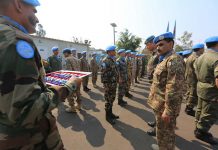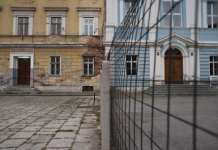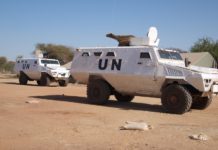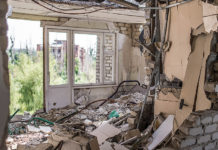Pakistan is a country where every year hundreds of lives are taken by the security agencies and law enforcement agencies through self justice, accusing the killed persons to be involved or suspicious to be involved in criminal activities. Two such incidents of such “self justice” killings have been observed in two major cities of Pakistan, Quetta and Karachi during 2011.
In the first incident at Quetta, security agencies killed five Russian tourists, including 3 women, on the suspicion of being suicide bombers and attempting to attack the security forces. The other incident took place at Karachi where a young guy aged about 18 years, being suspicion of robbery, was killed by Rangers, (para-military forces deployed for security). Both incidents were luckily captured by the local electronic media and were aired. Both incidents clearly showed neither the presence of any arms nor any resistance to be got arrested, rather both incident showed the life pledge from victims but security forces manifested their “power” by over- powering the suspected.
The superior judiciary took serious notice of the incidents and ordered for inquiries in both incidents. The inquiry commissions, comprised of senior officials are investigating into the matter. In Karachi incident, court has already convicted the accused persons by death sentence and life imprisonments. The incidents are very identical in nature and are in clear violation of Right to Life as provided by the Constitution of Pakistan. Under the constitution, it is the responsibility of the state to protect the life of her citizens but to the contrary, state institutions of Pakistan are taking the lives of the citizens.
Another major trend in 90’s was observed against the alleged robbers and allegedly hundreds of robbers were killed by the law enforcement agencies. Then provincial chief minister of Punjab was alleged to make such orders and several petitions have been filed against him by the victim’s families.
After 9/11, Pakistan has become a security concerned zone. This has led to a new wave of extra-judicial killings in Pakistan. War against terrorism, has lead to initiate operations in many areas. Though these operations have got some successes, in curbing the terrorism activities, but at the same time, it is alleged that such operations have planted upon the political workers and civilians as well.
As per Human Rights Commission of Pakistan reports for 2010, as many as 12,580 people were murdered and over 17000 cases of abduction have been reported. Amongst these murders as many as 338 people were killed in Police encounters and at least 174 persons were recovered from illegal detention centers of the police. Target killings took the lives of thousands of people across the country.
Only in one city of Karachi, as many as 237 political workers and 301 civilians were killed in target killings. In Balochistan, 118 people were killed in target killings while the bodies of 59 missing persons found dead. It is also critical that around 20 journalist were also amongst those unfortunate who lost their lives in such targeted killings. It is also important to mention that during the year 2010, the Governor of Punjab Salman Taseer was assassinated & killed by one of his Police body guard, due to his stance on Blasphemy laws. While the minister for religious minorities Shahbaz Bhatti was also attacked and killed by some “unidentified” assailants. It was alleged that the assailants had some support from deceased minister’s police guards as they were suspiciously absent at the time of incident.
Forced disappearances of hundreds of political workers especially from nationalist parties have also been a matter of concerned of Pakistani civil society. Though, Supreme Court of Pakistan has taken serious notice and in result many of disappeared persons have been released but still a lot to be recovered.
Unfortunately, the justice system in Pakistan is also not working well. Pakistan carries some of the legislations which deal with the terrorism. But due to poor prosecution and incapacity of the investigative agencies for strong evidence, the conviction rate remained around zero percent. Though Pakistani security forces have captured hundreds of wanted terrorist in last seven years but not a single major conviction of any such terrorist have come to surface.
Moreover, amongst the cases of extra-judicial killings by the law enforcement agencies, it is important to know that under Pakistani law, the legal heirs of the deceased have the power to forgive the accused persons. This have been observed, that in such extra-judicial killings, the families are under the immense pressure to compromise with the “institution” and are forced by coercions and threats to withdraw cases against the officials from law enforcement agencies.
The state of human rights can be stated worst in context of Pakistan as every citizen is exposed to threat of violation of his/her fundamental rights. Speaking out in Pakistan has now become a potential threat to one’s life. Murder of a famous journalist Saleem Shahzad, has put the journalist and human rights defenders community at a greater risk of life. It is alleged by the Pakistan Union of Journalist, Human Rights Watch and other journalist bodies in Pakistan, that the murder has been taken place at the behest of Pakistan Intelligence Agencies, as the deceased was facing threats from agencies for writing down articles on some of the defense issues. Supreme Court has established a Judicial Commission to probe into the murder of Mr Saleem Shahzad.
In recent past, I have personally felt a wave of fear and agony amongst many sections of civil society as they have now become the potential target both by state institutions and terrorist. Solidarity has to be established with all the victims (and their families) of state-originated violence and terrorism in Pakistan, even if hope for justice remains weak







